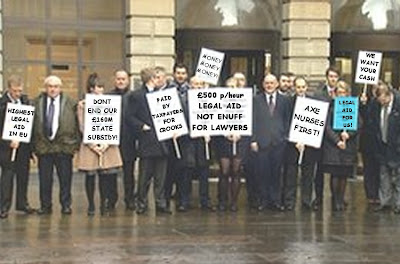Scotland’s Justice system, the most expensive, greedy & unproductive in the entire European Union. SEASON’S GREETINGS to all our readers from all of us at Diary of Injustice. Suffice to say, that Scotland’s justice system continues to be, as the current Lord President Lord Gill once said, “Victorian”, failing society, and as costly & frustrate today as it was twenty, or even thirty years ago, despite the claims of some that changes in Scottish Governments and politics would change our lives beyond all recognition.
If anything, it has got worse, and the consumer organisations which survive among the ruins of London sponsored cuts, and Holyrood laziness, have effectively been muzzled to the point of uselessness, leaving only the country’s media to hold vested interests to account, and expose or report on justice & injustice in Scotland’s disrespected justice system.
Do yourselves a favour, readers, if you have a problem with the justice system, those within it, those politicians who allow it to remain as ridiculous as it is, or those public bodies who fail to regulate it, don't keep it to yourself, go out and publicise it. and support those newspapers & journalists who take the time and make the effort for you. You might just do some good for yourself, and fellow Scots.
TIME TO CALL TIME ON SCOTS VICTORIAN JUSTICE & ANTI-PUBLIC COURTS SYSTEM
The Lord President, Lord Gill, author of the Civil Courts Review. Scotland’s current Lord President, Lord Gill, said in his speech to the Law Society of Scotland’s 60 year anniversary conference in 2009, reproduced in full here : “The civil justice system in Scotland is a Victorian model that had survived by means of periodic piecemeal reforms. But in substance its structure and procedures are those of a century and a half ago. It is failing the litigant and it is failing society. It is essential that we should have a system that has disputes resolved at a judicial level that is appropriate to their degree of importance and that disputes should be dealt with expeditiously and efficiently and without unnecessary or unreasonable cost. That means that the judicial structure should be based on a proper hierarchy of courts and that the procedures should be appropriate to the nature and the importance of the case, in terms of time and cost. Scottish civil justice fails on all of these counts. Its delays are notorious. It costs deter litigants whose claims may be well-founded. Its procedures cause frustration and obstruct rather than facilitate the achievement of justice."
Not to put too fine a point on it, Lord President … Coming up on four years on since this was said … It is time. The time is now. Scots are waiting for a justice system which will serve the country, not the needs of politicians and vested interests.
The Sunday Mail’s editorial on Scotland’s Justice system :
Justice must be for everybody.. or nobody
Mail Opinion
By Mail Opinion
23 Dec 2012 08:50
THE recent demand for longer sentences and heavier clampdowns by ministers chasing headlines could alter our faith in the criminal justice system.
Most of the time, he appears to be one of the more straightforward, committed and decent ministers in Alex Salmond’s cabinet.
And then, on a regular basis, he gets his big tackety boots on and blooters some fairly fundamental human rights all over the park.
There are some very serious and potentially alarming issues coming together in our criminal justice system at the moment.
We have Lord Advocate Frank Mulholland, now attending Cabinet meetings, who, rather worryingly, on Friday, claimed the independence of Scotland’s chief prosecutor from politicians was “a state of mind”.
Meanwhile, we have a new, single police force arriving next year with a new, single chief constable, Stephen House. He is a strong and stringent police officer who is unafraid to speak his mind and keen to champion changes to the law to increase conviction rates.
Now, none of these things are necessarily worrying. Taken together, however, the danger of an increasingly politicised prosecution service encouraged by a powerful police chief and backed by ministers eager to appear tough on crime raises very real fears for the checks and balances needed to protect ordinary people from the might and majesty of the law.
We are talking about things like the police’s increasing enthusiasm for scrutinising our mobile phones and emails without the approval of a sheriff or judge.
Things like the need to corroborate evidence before conviction. Things like the abolition of double jeopardy, meaning people can now be tried twice on the same charge.
Now, there are cases to be made for these changes but – and it’s a big but – where opinion is divided, our law-makers must come down on the side of those accused of crime.
These accused men, and they’re nearly all men, are often beneath contempt.
Many are vile and violent without decency or humanity. They contribute nothing and, when found guilty, deserve less.
Every single of them, however, has a right to a fair trial in a justice system where the most basic function is to protect that right. Because if they do not have it, then none of us have it.
The lines are blurring between our police, prosecutors and politicians in Scotland where a fear of crime has been exaggerated and our ministers chase headlines by demanding ever longer sentences and heavier clampdowns.
That makes for bad laws and we need to be wary because the constant chipping away at the pillars of fairness and decency shoring up our justice system will, at some point, chip away at our faith in that system.
Messrs MacAskill, Mulholland and House should be careful what they wish for.
Meanwhile, as the Beastie Boys reminded us so forcefully, there is at least one other right worth fighting for.
So, in that party spirit, from all of us to all of you, have a merry Christmas.
